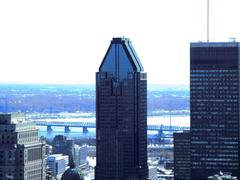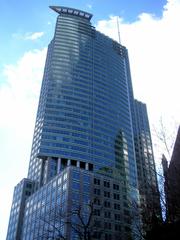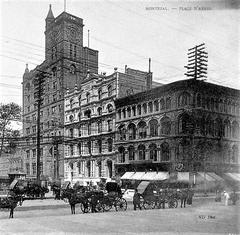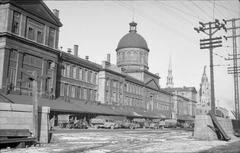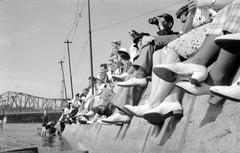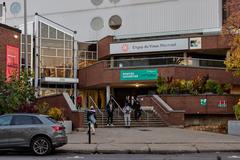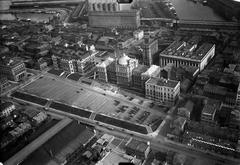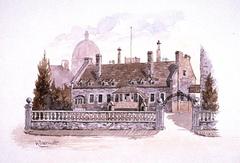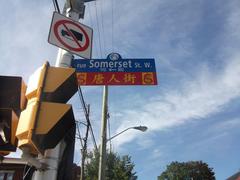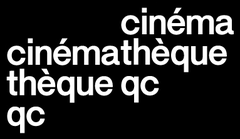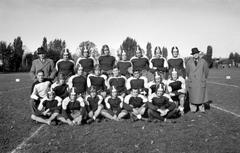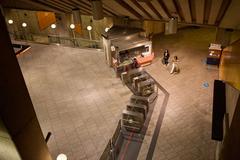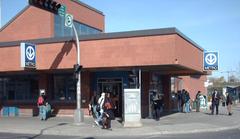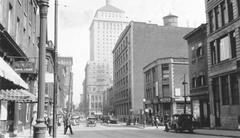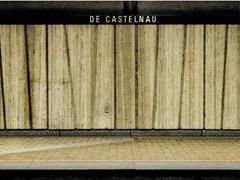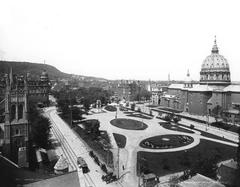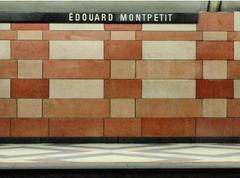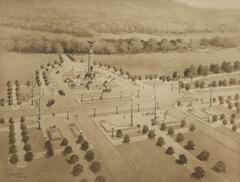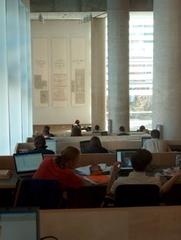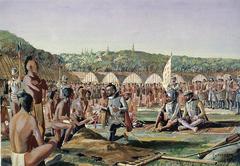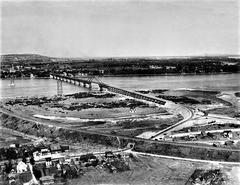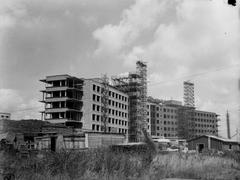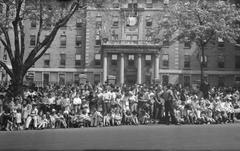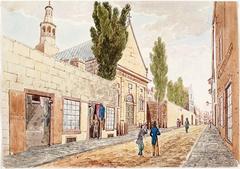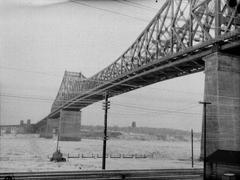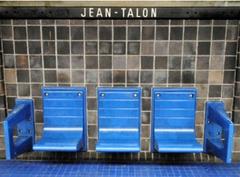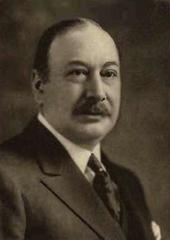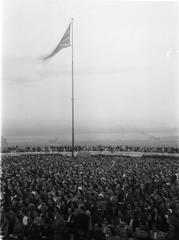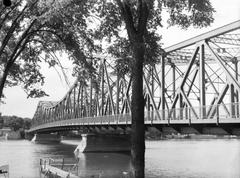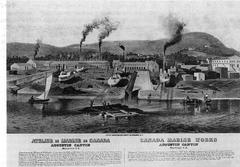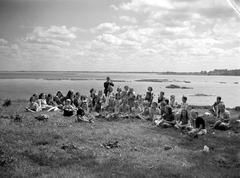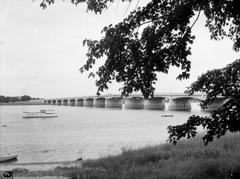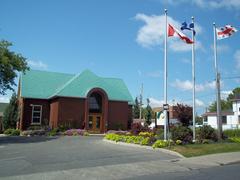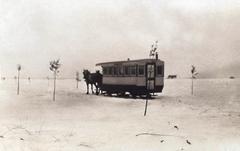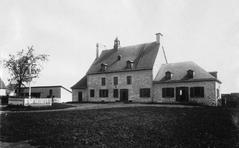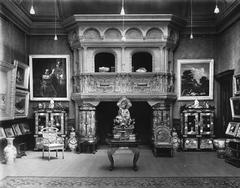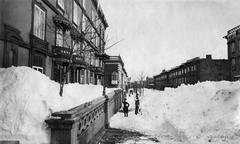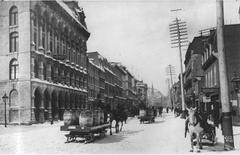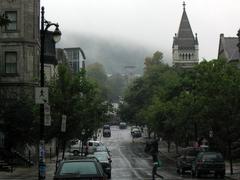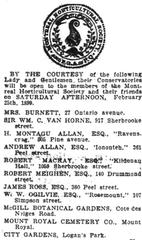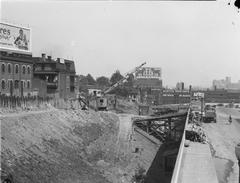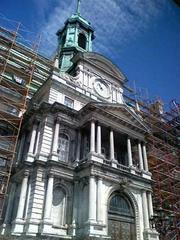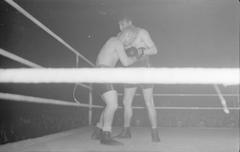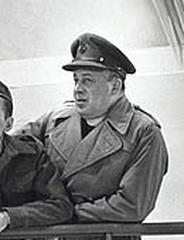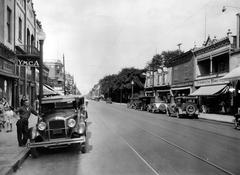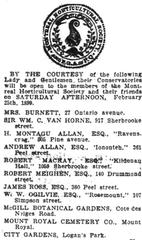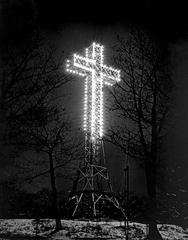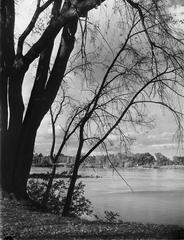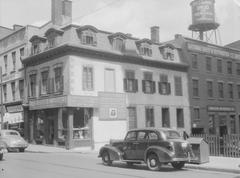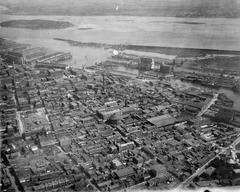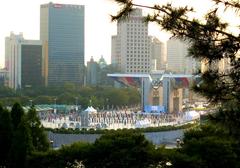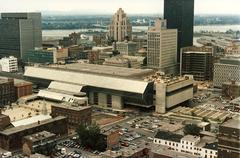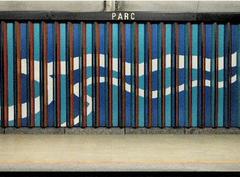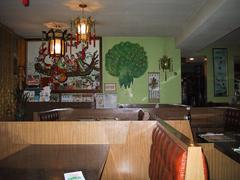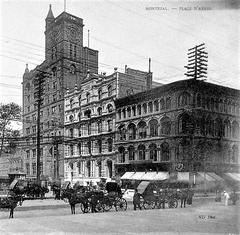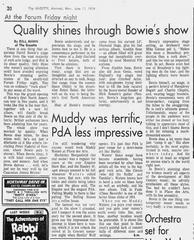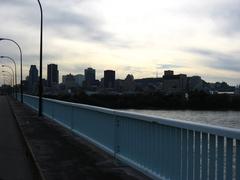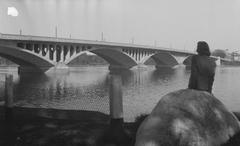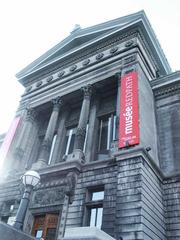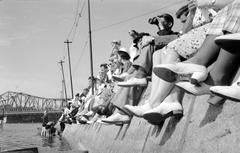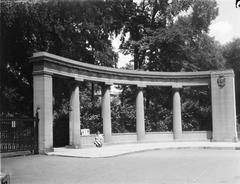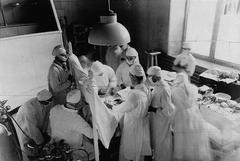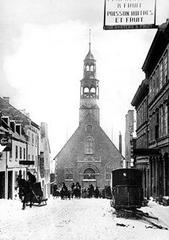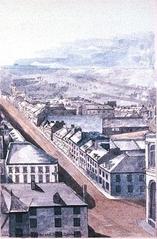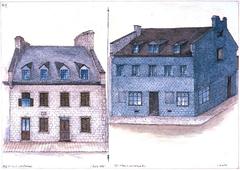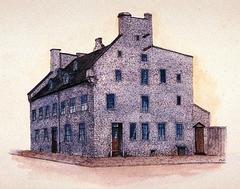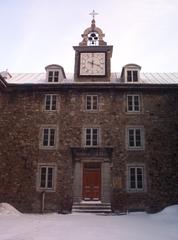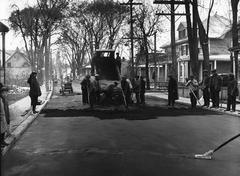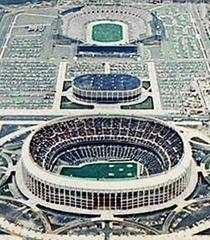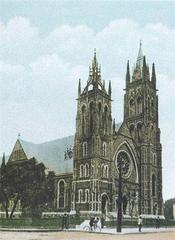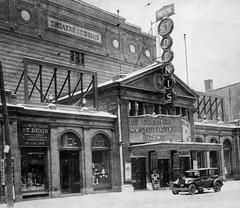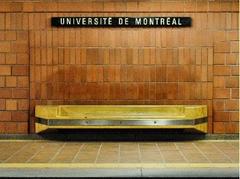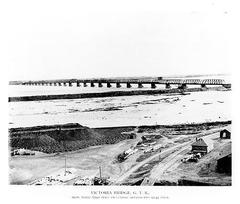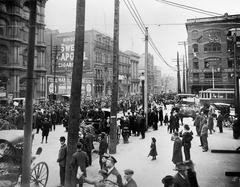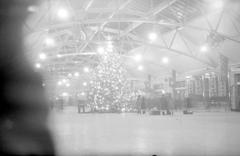
Ouimetoscope Montreal: Visiting Hours, Tickets, and Historical Significance
Date: 04/07/2025
Introduction
Step into the origins of Canadian cinema by exploring the Ouimetoscope, Montreal’s first permanent movie theatre. Established in 1906 by Léo-Ernest Ouimet, the Ouimetoscope was a transformative force in the cultural and cinematic evolution of Montreal and North America. Although the original structure no longer stands, its site remains an essential heritage landmark, marked by commemorative plaques and surrounded by Montreal’s vibrant Quartier des Spectacles. This comprehensive guide covers the Ouimetoscope’s history, its cultural impact, practical visitor information, and nearby attractions to help you make the most of your visit (Museums Canada; Parks Canada; Cinema Treasures; Heritage Montreal).
Table of Contents
- The Birth of the Ouimetoscope (1906–1907)
- Expansion and Cultural Legacy
- Léo-Ernest Ouimet: Pioneer of Canadian Cinema
- Decline and Transformation
- Visiting the Ouimetoscope Site Today
- Visuals and Media
- Frequently Asked Questions (FAQ)
- Conclusion
The Birth of the Ouimetoscope (1906–1907)
The Ouimetoscope was inaugurated on January 1, 1906, by Léo-Ernest Ouimet, an electrical engineer and film enthusiast from Saint-Martin-de-Laval. Using his savings, Ouimet converted a struggling cabaret at Sainte-Catherine and Montcalm into a 500-seat cinema (Museums Canada; Parks Canada). The immediate popularity of the theatre—earning $100 in its first week—demonstrated Montrealers’ appetite for moving pictures (Wikipedia).
Expansion and Cultural Legacy
Within a year, the Ouimetoscope expanded into a grand movie palace with 1,200 seats—then the world’s largest cinema (Cinema Treasures). The new venue introduced innovative amenities, including air conditioning, balconies, and box seats, making cinema accessible to a broad cross-section of Montreal society (Museums Canada).
Programming at the Ouimetoscope was eclectic, featuring French and American films, newsreels, and live musical accompaniment. The theatre’s commitment to French-language films played a vital role in preserving Quebec’s Francophone culture and fostering local talent (Heritage Montreal). The Ouimetoscope’s success inspired the proliferation of similar cinemas across the city, solidifying Montreal’s reputation as a hub for cinematic arts.
Léo-Ernest Ouimet: Pioneer of Canadian Cinema
Beyond exhibition, Léo-Ernest Ouimet was a trailblazer in film distribution and production. He established Canada’s first film exchange and produced early Canadian newsreels and documentaries, contributing to the development of the national film industry (Parks Canada; The Canadian Encyclopedia). Ouimet’s technical innovations, including subtitle projectors and experiments with 3D projection, set new benchmarks for the industry.
Decline and Transformation
By the 1920s, the Ouimetoscope faced challenges from American film monopolies and social pressures, including restrictions on Sunday screenings (The Past Whispers). Ouimet sold the theatre in 1922, and after several ownership changes, the cinema closed in 1993. The original building was replaced by a modern development, but the site’s cultural resonance remains strong (Cinema Treasures).
Visiting the Ouimetoscope Site Today
Location and Access
- Address: Corner of Sainte-Catherine and Montcalm Streets, in Montreal’s Quartier des Spectacles/Gay Village.
- Transit: Easily accessible via Berri-UQAM and Saint-Laurent Metro stations (Cinémathèque québécoise), with bus and BIXI bike options nearby.
Hours and Ticket Information
- Visiting Hours: The commemorative plaque marking the Ouimetoscope’s site is outdoors and accessible 24/7.
- Ticket Information: No tickets are required. The site is a public historical marker.
Accessibility
- Physical Access: The site is on a wide, flat sidewalk, suitable for wheelchairs and strollers.
- Nearby Museums: Institutions like the Cinémathèque québécoise and the Montreal Museum of Fine Arts are also accessible, though visitors should confirm specific accommodations (Cinémathèque québécoise).
Nearby Attractions
- Cinémathèque québécoise: Quebec’s leading film archive, offering screenings and exhibitions (Cinémathèque québécoise).
- Quartier des Spectacles: Montreal’s cultural district, featuring festivals, public art, and major venues.
- Old Montreal: Historic district with cobblestone streets and heritage architecture—a 15–20 minute walk.
Travel Tips
- Best Time to Visit: Summer (June–September) is lively with festivals and pedestrian-only streets, but the area is accessible year-round.
- Combining Visits: Join a walking tour for deeper historical context. Many tours include the Ouimetoscope site (A Taste for Travel).
- Amenities: Cafés, restaurants, and shops abound in the neighborhood, making it easy to plan a meal or coffee break nearby.
Visuals and Media
Enhance your visit by exploring images of the Ouimetoscope plaque, archival photos of the original theatre, and interactive maps of the Quartier des Spectacles. Online resources from Cinema Treasures and Cinémathèque québécoise provide visual and historical context.
Frequently Asked Questions (FAQ)
Q: Is the Ouimetoscope still in operation as a cinema?
A: No, the Ouimetoscope closed as a cinema in 1993. The original building has been replaced, but the site is marked by a commemorative plaque.
Q: Are there visiting hours or tickets required?
A: No tickets are needed. The site is a public space accessible at all times.
Q: Is the site accessible for wheelchair users?
A: Yes, the sidewalk and nearby cultural venues are generally accessible.
Q: What else can I visit nearby?
A: The Cinémathèque québécoise, Quartier des Spectacles, and Old Montreal are all within walking distance.
Q: Are guided tours available?
A: Yes, several heritage walking tours include the Ouimetoscope site. Check local tour providers or Tourisme Montréal.
Conclusion
The Ouimetoscope’s legacy endures as a touchstone of Canadian cinema and Montreal’s artistic heritage. A visit to its historic site—though modest—connects you to a pivotal chapter in the city’s story of innovation, culture, and community. Surrounding attractions and museums further enrich the experience, making the Ouimetoscope a meaningful stop for history enthusiasts and film lovers alike.
Ready to explore Montreal’s rich heritage? Download the Audiala app for curated walking tours, event updates, and personalized recommendations. Discover more about Montreal’s historical sites and vibrant arts scene in our related articles.
References and Further Reading
- Museums Canada
- Parks Canada - Léo-Ernest Ouimet
- Cinema Treasures - Ouimetoscope
- Heritage Montreal
- The Canadian Encyclopedia - Quebec Cinema
- Montreal Gazette
- Wikipedia - Ouimetoscope
- Cinémathèque québécoise



